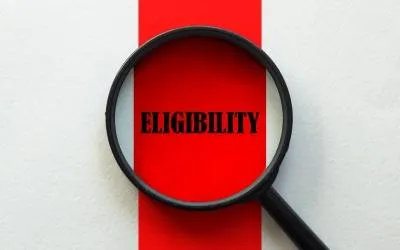
Medicare Eligibility: Are You Ready to Enroll?
Medicare Eligibility: Are You Ready to Enroll? Key Takeaways
Most people are eligible for Medicare when they turn 65 years old, but you may have to take action to sign up in many cases because you may not be automatically enrolled.
Original Medicare (Parts A and B) is the starting point for coverage. Once you have Parts A and B, you can add a Medigap and/or a Part D plan or switch to a Medicare Advantage plan.
Different rules cover when you can sign up for Medicare offerings and whether you will face a penalty if you don’t sign up when first eligible.
Some people simply think of Medicare as their health insurance plan for retirement, but not everyone will retire when they turn 65. You need to know what to expect when you become eligible for Medicare. And you need to know before you become eligible.
In the simplest terms, most Americans become eligible for healthcare coverage from Medicare when they turn 65 years old. But like a lot of things in life, it’s not quite that simple.
It’s essential to make sure you have an idea of what’s coming before your initial Medicare enrollment window comes and goes.

Are You Eligible for Medicare?

You’re generally eligible for Medicare benefits when you turn 65, but don’t assume your Medicare card will arrive in the mailbox along with your birthday cards. The Social Security Administration (SSA) oversees Original Medicare enrollment and automatically enrolls individuals who receive Social Security benefits or Railroad Retirement Board benefits at least four months before turning 65.
Your Medicare ID Card
You should receive your Medicare ID card and further instructions in the mail about three months before turning 65.
What If I’m Not Automatically Enrolled?
If not, it is up to you to apply for Medicare through the Social Security Administration online, on the phone, or in person.
When Can I Enroll in Medicare?
There are multiple opportunities to enroll in Medicare or change your plan. Think ahead to make sure you get the benefits and coverage you need.
Initial Enrollment Period
If you are new to Medicare, you have an Initial Enrollment Period (IEP). For most people, this period extends from three months before the month you turn 65 to the three months after you turn 65. It also includes the month you turn 65.
For example, if you turn 65 in June:
Three months before you turn 65: March, April, May
Your birth month: June
Three months after you turn 65: July, August, September
However, if you were born on the first of the month, then you can begin enrolling four months before your birth month, up to two months after your birth month.
If you are eligible for premium-free Part A but miss your initial window, you may sign up at any time, and the benefits will be retroactive for six months (assuming it’s been at least six months since you became eligible).
Annual and Special Enrollment Periods Explained
If you don’t sign up during your IEP, you have three Medicare enrollment periods during the calendar year. It’s essential to understand how these enrollment periods work because each has different Medicare guidelines and are not the same.
Open Enrollment Period (OEP) January 1 to March 31
Annual Enrollment Period (AEP) October 15 to December 7
Special Enrollment Period (SEP) An open period based on certain life events
Which Medicare Plans Can I Combine During Enrollment?
The options can be confusing if it’s your first time enrolling in Medicare, and if it’s not. Let’s take a look at Original Medicare and Medicare Advantage and how different plans can work together to provide you with the care and benefits you need.
Original Medicare, Medigap and Part D vs. Medicare Advantage

Original Medicare (Parts A and B)
Part A is premium-free for anyone age 65 who paid Medicare taxes for at least 10 years (or had a spouse who did), but Part B requires a monthly premium.
Here’s an example of how Part A and Part B work:
Part A will pay for your first 60 days in a hospital after you meet your annual deductible.
Part B will pay 80 percent of a doctor’s visit after you meet your annual deductible.
Medicare Supplement
Parts A and B open the door for eligibility and enrollment for other Medicare-related offerings.
A Medicare supplement — also known as Medigap — refers to insurance offered by private insurance companies but regulated by Medicare that works to fill in the gaps in out-of-pocket costs you potentially face with Original Medicare.
Medicare Part D
Part D is a stand-alone policy offered by private insurance companies that can be added to Original Medicare to help with pharmacy costs.
Any period longer than 63 days without creditable drug coverage can result in a late enrollment penalty equal to 1 percent of the national average premium for each month you went without Part D.
Medicare Advantage (Part C)
Private insurance companies administer Medicare Advantage, but Medicare regulates it. Part C bundles Part A and B, Medigap, and often Part D while also offering dental and vision coverage options. In some cases, Medicare Advantage can reduce or even eliminate the monthly premium you pay for Part B under Original Medicare.

Sources
Ready to sign up for Part A & Part B . Medicare.gov.
This website is operated by Derene Derricotte, LLC., a licensed health insurance company. The website and its contents are for informational and educational purposes; helping people understand Medicare in a simple way. The purpose of this website is the solicitation of insurance. Contact will be made by a licensed insurance agent/producer or insurance company. Medicare Supplement insurance plans are not connected with or endorsed by the U.S. government or the federal Medicare program. Our mission is to help every American get better health insurance and save money.
Any information we provide is limited to those plans we do offer in your area. Please contact Medicare.gov or 1-800-MEDICARE to get information on all of your options.

